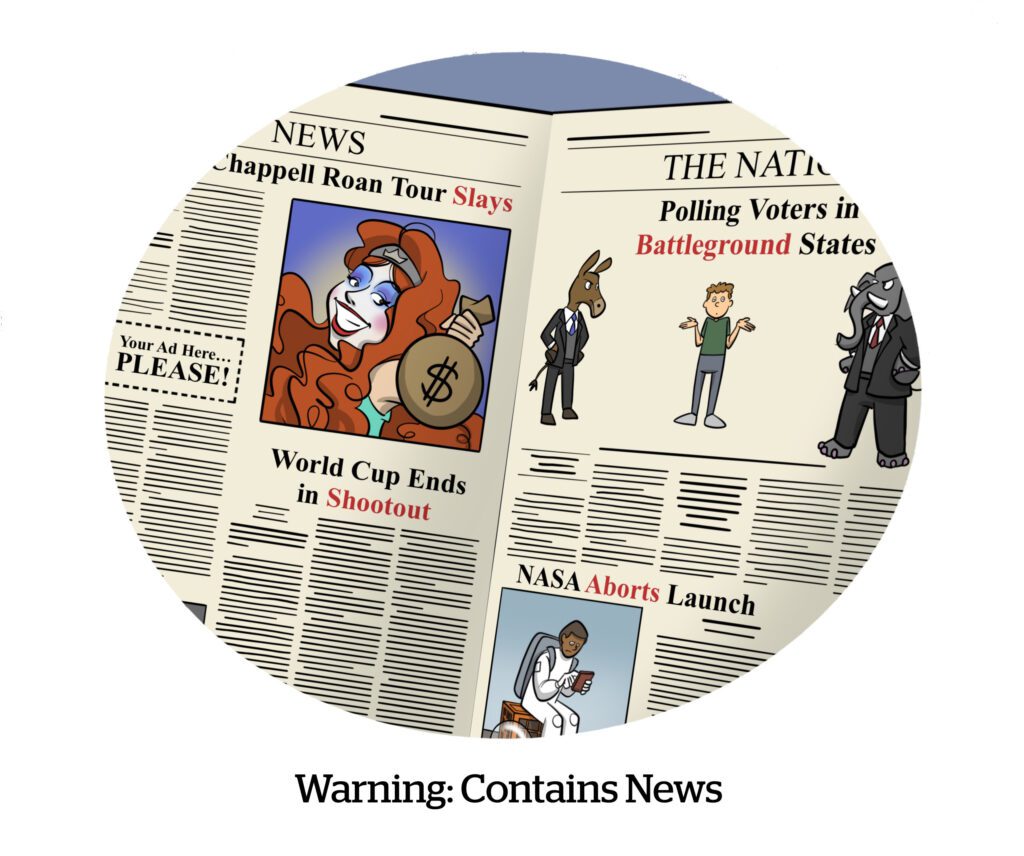News publishers are getting serious about bypassing the blunt brand safety instruments that have been demonetizing them for years.
And they’re doing it by building private marketplaces of trusted news sites that, in theory, shouldn’t raise brand safety concerns.
On Thursday, publisher advisory firm Prohaska Consulting debuted the ProNews Collective, a private marketplace (PMP) of premium news publishers. ProNews Collective ad inventory will be exclusively available via its SSP launch partner Index Exchange. All ad inventory participating pubs sell programmatically – including display, video and, in some cases, audio – will be available through these PMPs.
“Our goal here is twofold,” said Matt Prohaska, CEO and principal of Prohaska Consulting. “To move dollars back to news publishers, and to help buyers combine scale with safety while buying many publishers at once – without having to spend money on [brand safety] tech that doesn’t do what it’s supposed to.”
Brand safety not allowed recommended
Although Prohaska Consulting and Index are not prohibiting advertisers from using third-party brand safety and verification tech for ProNews Collective campaigns, they strongly advise against it, Prohaska said. Instead, they want brands to trust the protections publishers have put in place themselves, such as removing ads from coverage of wars and disasters.
To that end, Prohaska Consulting has spent the past year collaborating with publishers and agencies to set safety parameters for its PMPs.
At least 10 premium news brands are in talks to participate in the collective, although Prohaska declined to name any on the record. The initiative also has support from at least three media buyers, including ad agency Goodway Group.
“Too much of the industry has taken an overly cautious approach to reaching these audiences, when it’s possible to do that in brand safe environments. ProNews is a vehicle that can bring them back,” said Stephani Estes, chief media officer at Goodway Group. “We believe in the value of news audiences and their ability to drive results.”
Not an ad network
The ProNews Collective launch was timed to allow participating publishers and advertisers to capitalize on the opportunities presented by the US presidential elections in November, Prohaska said.
The collective will be limited to a small number of marquee news brands that strike revenue sharing deals, he said. “We’re not bringing in 700 publishers.”
And don’t call it an ad network, Prohaska added. “We’re not doing the shenanigans others did for 20 years, where we buy a few impressions in open auction and then sell [the publisher’s] logo when we don’t really have a deal.”
Advertisers will not be forced to buy inventory across all the publishers involved, Prohaska said. For example, if an advertiser already has a direct deal in place with one of these publishers, it can simply remove that publisher from the marketplace to avoid impacting what the two parties are already transacting directly. Advertisers will also have some contextual buying options at their disposal to focus their campaigns.
Prohaska Consulting will provide publishers with monthly reporting that includes why they were removed from certain buys and how they’re performing against other pubs in the collective, he said.
Publisher performance
Pricing for the collective’s inventory takes into account each publisher’s price floor and ceiling for programmatic guaranteed and open auction.
“The last thing we want is for any publisher to say, ‘Gee, I could have gotten at least that on my own in open auction,’” Prohaska said. “We want to make sure it’s all incremental.”
Plus, because there are fewer intermediaries and tech layers applied in these PMP deals, publishers can expect a larger revenue share than they’d typically get from open auction, Prohaska said.
The PMPs should also work for performance buyers, Prohaska said, and disprove the perception that news doesn’t work for performance campaigns – a perception, he said, made in a landscape where nearly 80% of advertisers in the US and other developed markets rely on last-click attribution, according to eMarketer.
That fixation on last-click “hurts any publisher who is really good at the top of the funnel and not as good as the five or six companies [that excel] at the bottom of the funnel,” Prohaska said, alluding to large social media and ecommerce platforms. “We want this product to be able to stand on its own and compete fairly, dollar for dollar, conversion for conversion, with everything else.”
But the main purpose of the collective is to dispel the industry’s overreliance on automated brand safety tools.
“The goal is to change hearts and minds,” Prohaska said. “We’re talking eight years plus of going in the wrong direction because of the culture fear, with agencies not wanting to screw up, combined with brand safety tools that, unfortunately, have been used as too much of a default.”















